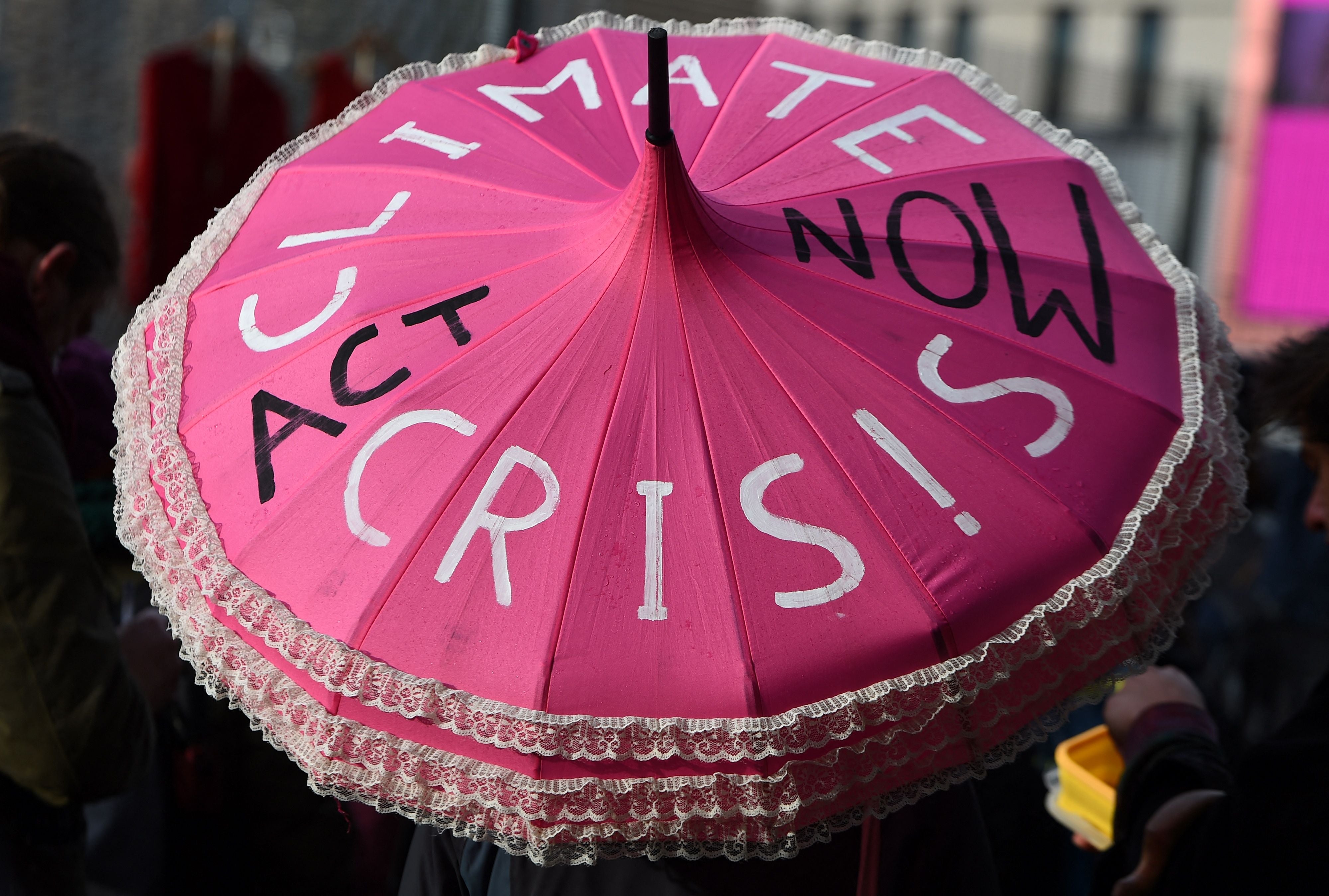We urgently need to rethink the funding of global climate action
If the financial crisis and Covid were important enough for governments to do whatever it takes to find the money needed, then surely the climate crisis demands a similar response


Your support helps us to tell the story
From reproductive rights to climate change to Big Tech, The Independent is on the ground when the story is developing. Whether it's investigating the financials of Elon Musk's pro-Trump PAC or producing our latest documentary, 'The A Word', which shines a light on the American women fighting for reproductive rights, we know how important it is to parse out the facts from the messaging.
At such a critical moment in US history, we need reporters on the ground. Your donation allows us to keep sending journalists to speak to both sides of the story.
The Independent is trusted by Americans across the entire political spectrum. And unlike many other quality news outlets, we choose not to lock Americans out of our reporting and analysis with paywalls. We believe quality journalism should be available to everyone, paid for by those who can afford it.
Your support makes all the difference.The UN climate summit in Glasgow failed to deliver either the policies needed to reduce carbon emissions at the scale and speed the science demands, or the finance necessary to enable countries in the global south to address the loss and damage they are suffering now, let alone fund the transition to a zero-carbon future.
Amid the disappointment, however, there were two positive developments. First, the agreement that the “ratchet” mechanism will be revisited on an annual basis, which should build pressure on governments to make bigger and faster cuts in carbon emissions. It also means they’ll be held to account more regularly.
Second was the vital role played by the nations most threatened by the climate and nature crises. In 2015, it was their pressure which led to the 1.5C temperature target being written into the Paris Agreement. In Glasgow, they kept the spotlight on the key but often sidelined question of how to pay for the global transition in a way that deals with past, present and future damage, while also funding mitigation and adaptation measures now.
The call made in Glasgow to increase climate funding from $100bn (£74bn) to $200bn a year by 2025 was wholly inadequate. It is a drop in the ocean compared to the sums required.
This funding gap was most clearly set out by the prime minister of Barbados, Mia Amor Mottley, who said in her opening speech at Cop26: “The central banks of the wealthiest countries engaged in $25 trillion of quantitative easing in the last 13 years. Of that, $9 trillion was spent in the last 18 months to fight the pandemic. Had we used that $25 trillion to finance the energy transition we would now be reaching that 1.5 degrees limit that is so vital to us.”
Quantitative easing (QE) describes a particular form of government money creation in which a government’s central bank, like the Bank of England in the UK, effectively creates new money for use by that government. Its impact has been significant. In the 2008/2009 crisis QE was used in the UK to bail out the banks. In the Covid crisis QE was used to fund furlough and other measures to ensure the economy did not grind to a halt when huge sectors had to be shut down.
Mottley is right. We urgently need to rethink the funding of global climate action. While investment is pouring into the renewable energy sector and delivering healthy profits, this is not happening in nature-based solutions where there is no clear financial profit to be had. Nor is sufficient funding forthcoming to address either adaptation measures or to cover Loss and Damage. Yet these are vital so we need to find alternative funding models now.
Two options stand out. One might be called “Climate QE”. The other is the Special Drawing Rights (SDRs) created by the International Monetary Fund (IMF) which can have much the same impact as QE for developing countries.
The UK government has created £895bn of new money using QE since 2009. In the process it effectively cancelled a similar amount of UK government debt. That means that the real level of government debt is not the £2,300bn that the government claims it to be, but something like £1,400bn. Importantly, this new QE-created money does not have to be repaid. This is because one arm of government, the Bank of England is electronically creating it to be used by another arm of the government, the Treasury, and that never has to be unwound.
When managed appropriately, this approach is not inflationary. In fact, around the world the QE era has been associated with exceptionally low inflation. The current inflationary spike has been more about supply chain disruption than money creation. But QE can only really work in countries where governments can borrow in their own currencies. Most developing countries are forced by the global financial system to borrow in currencies other than their own, usually in US dollars. So they can’t deploy QE themselves.
Climate QE resolves this by making QE available to the global south. If the right partnerships were built at the next UN climate summit, Cop27 in Egypt, then money created in richer nations could be directed to developing countries to fund climate action. It’s not the only approach. An alternative is the use of IMF Special Drawing Rights. These increase the amount of credit that a government has with the IMF, which it can then use to settle payments due to other countries. If SDRs could be directed towards mitigation and adaptation efforts and limited to those countries with the greatest financing need, they could, with climate QE, meet that funding challenge set out by Mottley in Glasgow when she called for an additional $500bn worth of SDRs to be issued every year for 20 years to unlock the carbon-cutting investments needed to limit heating to 1.5C.
The global financial crisis was a huge challenge for governments. So is the Covid pandemic. But they are both dwarfed by the impacts that we will face, and are facing, with the destruction of biodiversity and the breakdown of the climate system.
If the financial crisis and Covid were important enough for governments to do whatever it takes and find the money, then surely the climate and ecology crises demand a similar response.
Our New Year’s climate resolution must be to put the call for this scale of funding at the heart of negotiations at Cop27. I believe that this is possible. Prime minister Mottley believes it is essential. We just need to persuade those holding the purse strings.
Caroline Lucas is the Green Party MP for Brighton Pavilion
Join our commenting forum
Join thought-provoking conversations, follow other Independent readers and see their replies
Comments